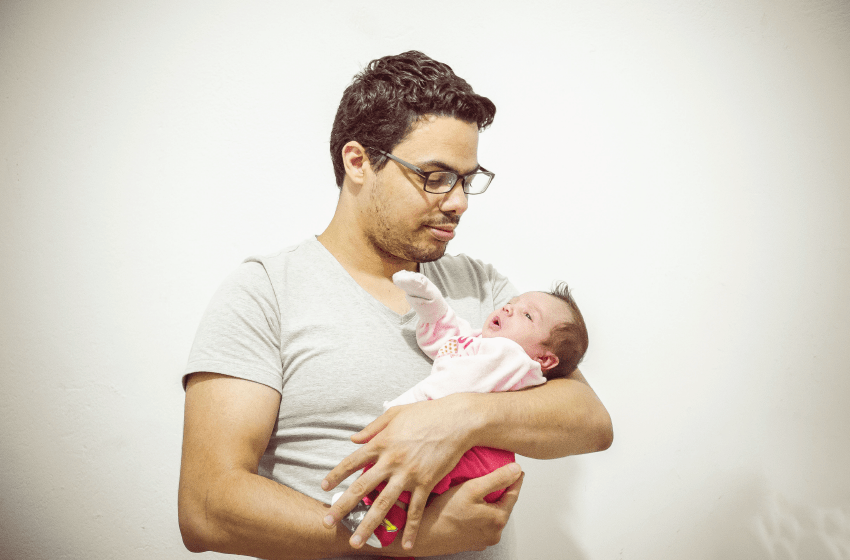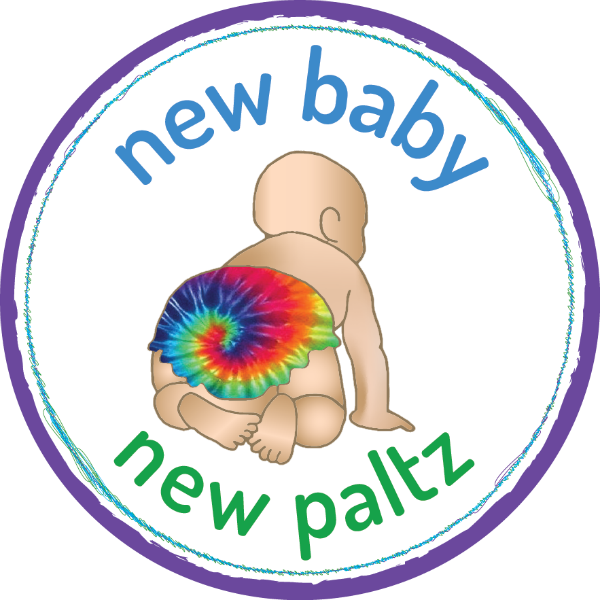
The Myth of Self Soothing
Long ago... in the time of the sabertooth tiger....we used a survival tool called the "fight or flight" response. And we still use it today.
Briefly described: When faced with danger, humans have a burst of adrenaline that switches off less important body functions like digestion or lactation and prepares them to either fight an attacker, or flee danger. If that fails, or if the human is very young, there is a backup reaction called the "freeze response" that shuts down the whole body so as to appear dead. This is an attempt to become less visible and may actually fool the predator into thinking that the victim is inedible because they are already dead. It also serves to make the victim numb in the event they are eaten alive.
"You gotta know when to hold em..."
One of the traps new parents can fall into is thinking they have to teach their baby to self-soothe. Infants are too young to consciously self-soothe. If you know some babies who do self-soothe, you may wonder why your baby does, or does not.
Here is what is happening when a baby cries.
Humans did not always live in relatively safe houses and apartments. 10,000 years ago if you set your baby down and walked away, there was a good chance your baby would be gone when you came back.
Babies have not evolved from this primitive state. They don't know they are safe. They don't know you are 20 feet away in the next room. Babies have no sense of time. They can't tell five minutes from an hour.
When a baby is separated from his mother, he can't know she is in the next room and she is coming "in just a minute." So he cries. Mothers are made to respond to their baby's cry. We can't stand to hear a baby cry--that's how its supposed to be.
Baby vocalizes a need-->mom responds-->need is met-->baby survives.
If the mother doesn't respond, the baby gets scared, which activates an adrenaline rush and escalates his fight or flight response--he cries louder and harder. He is incapable of fighting or running to survive without his mom.
If she waits too long to respond, he is certain she is gone forever, because if she was near, she would have responded to his cries. When a baby reaches a certain level of stress, he gives up. He goes into the freeze response. Because by dramatically lowering his heartrate, breathing and digestion, he conserves energy and has a greater chance of surviving.
This is the so-called self-soothing that many babies do.
So when parents let their babies cry because they have to learn how to self-soothe, what the baby understands is this:
"I don't understand what you are telling me. I am ignoring your needs so stop asking for help."
So most babies go into a freeze response. And for some babies it becomes a habitual response. The problem with this is that the body produces cortisol and other stress hormones which ordinarily are used to survive times of real stress. If overexposed, they can contribute to development of various physical and mental health conditions, including diabetes, obesity, depression and immune disorders. It's important to remember that it's not a direct cause but one that increases risk.
Some babies don't give up.
You may have a baby that will not stop crying. She teaches you to respond to her needs because they are just that: Needs. Maybe it's not a need for food, but a need for survival and protection that is hardwired in. Maybe it's a need for comfort or empathy. Whatever the underlying need, she relies on you to help her until she can think and act for herself and meet her own needs. Only then, can she self-soothe.
How about self-soothing adults?
Maybe you can remember a time as an adult when you were in pain, scared or lonely? Maybe you were even frustrated, tired or hungry? Maybe just bored? If you were alone, how did you sort it out? Were you able to self-soothe? Or did you handle it in some other way, maybe eat chocolate, watch TV, smoke a joint or have a glass of wine?
We are hardwired to receive support and empathy from our fellow humans. If we can nurture this response in our infants from the beginning then we will experience the fullness of human love, care and companionship in our families.
Share
